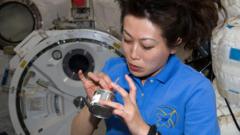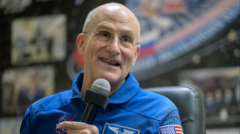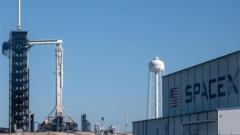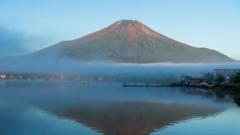Two astronauts complete a nine-hour outing outside the Tiangong Space Station, edging past a long-standing American record from 2001.
Chinese Astronauts Set New Record for Spacewalk Duration

Chinese Astronauts Set New Record for Spacewalk Duration
China's spacewalk pushes the boundaries of astronaut activity, claiming the longest duration.
Two astronauts from China have officially undertaken what is being reported as the longest spacewalk in history, maintaining a presence outside their nation's Tiangong Space Station for a remarkable nine hours. This achievement, claimed by the Chinese Manned Space Agency, outlasts the previous record set by American astronauts in 2001, who were outside their spacecraft for eight hours and 56 minutes.
Ian Song Lingdong and Cai Xuzhe represented China’s Shenzhou-19 mission during this notable endeavor. Following their spacewalk earlier this week, one astronaut expressed deep emotions reflecting on humanity's aspirations in space exploration, revealing the weight of their task amidst the awe-inspiring views.
The astronauts launched into orbit in late October, embarking on a six-month mission to support the construction and maintenance of the Tiangong Space Station. They are also tasked with conducting additional spacewalks and experiments aboard the facility. A third astronaut, Wang Haoze, remained within the station to assist their efforts. Chinese officials plan to utilize the Tiangong mission as a launching pad for future moon explorations.
Historically, spacewalks began back in 1965, followed by numerous milestones including China’s first spacewalk in 2008, which lasted just 19 minutes. The significance of the most recent undertaking was evident as the astronauts installed vital equipment to safeguard the space station from debris and conducted inspections of external systems. Although China has heralded this as a groundbreaking achievement, the Manned Space Agency has yet to formally label the nine-hour duration as a world record, possibly pending international recognition.
Along with their scientific tasks, the astronauts have also brought aboard fruit flies for research on how microgravity and altered magnetic fields can influence their growth and behavior, adding a biological dimension to their operational goals. This expands the scope of Chinese endeavors in space, underscoring their commitment to scientific discovery amidst a rapidly advancing space race.












